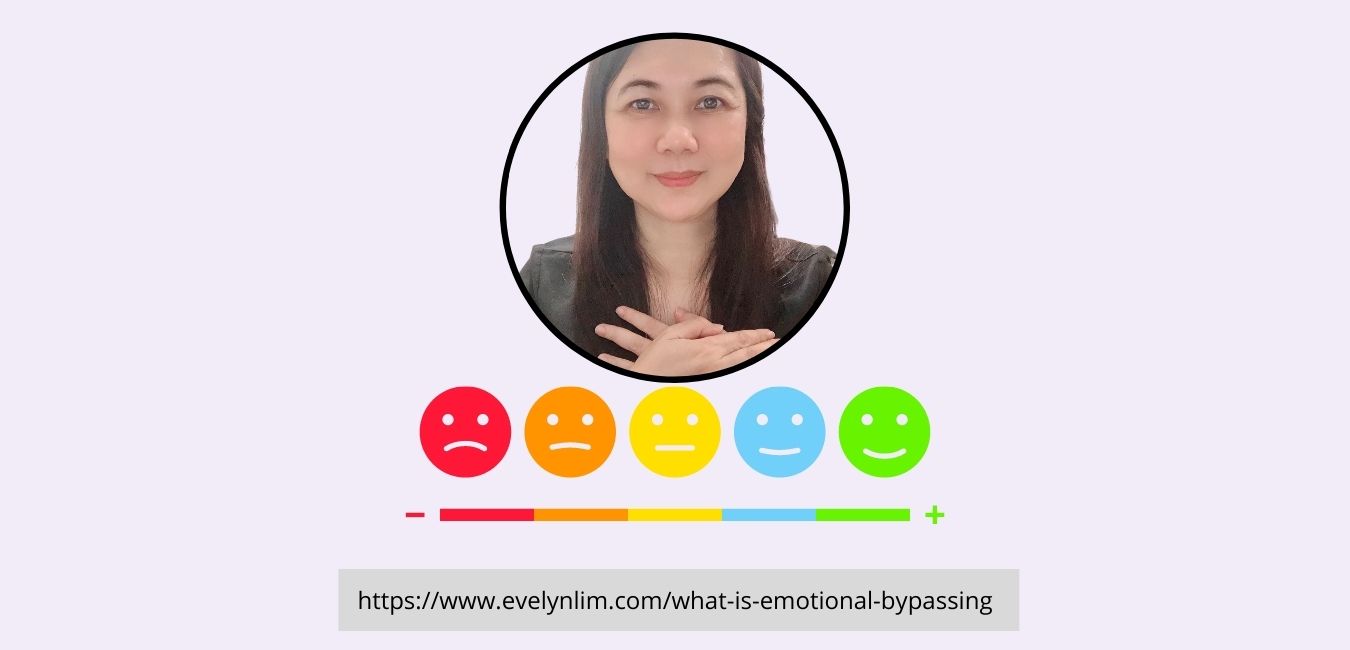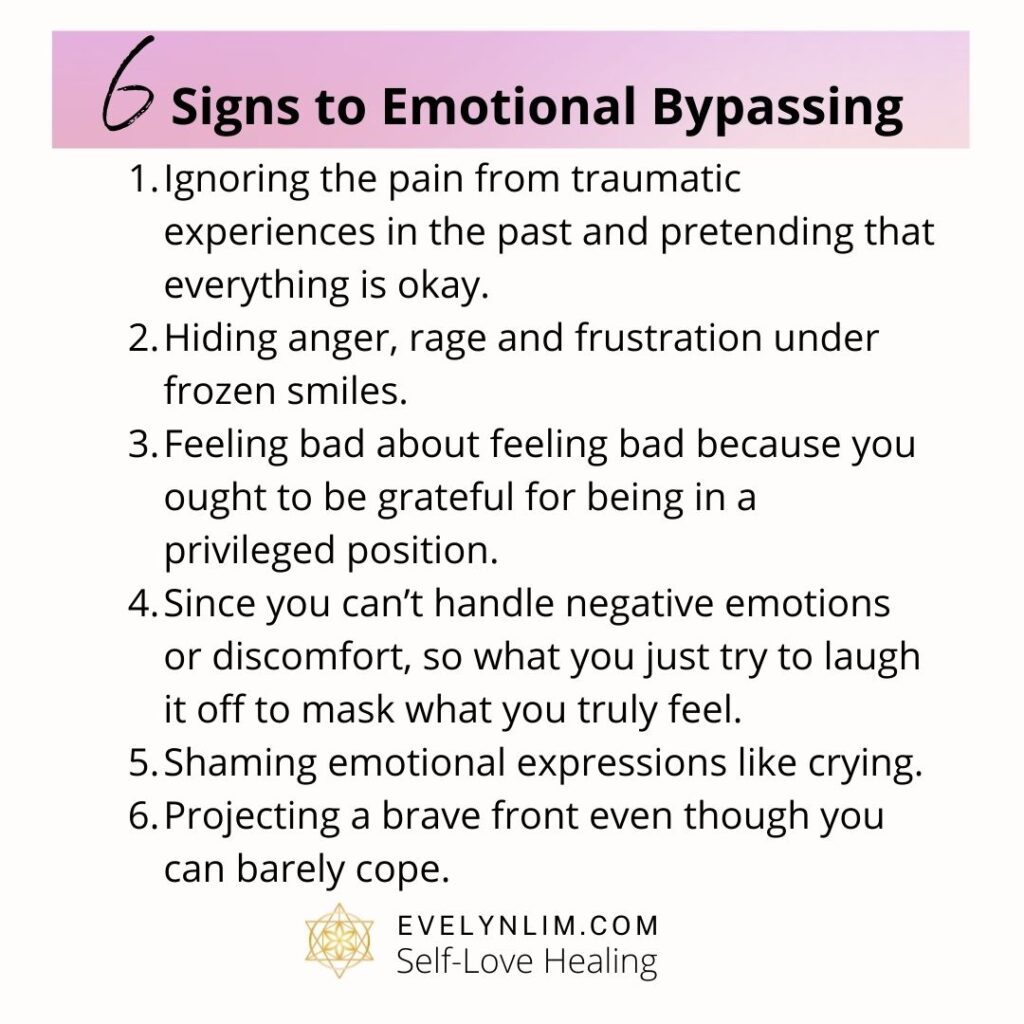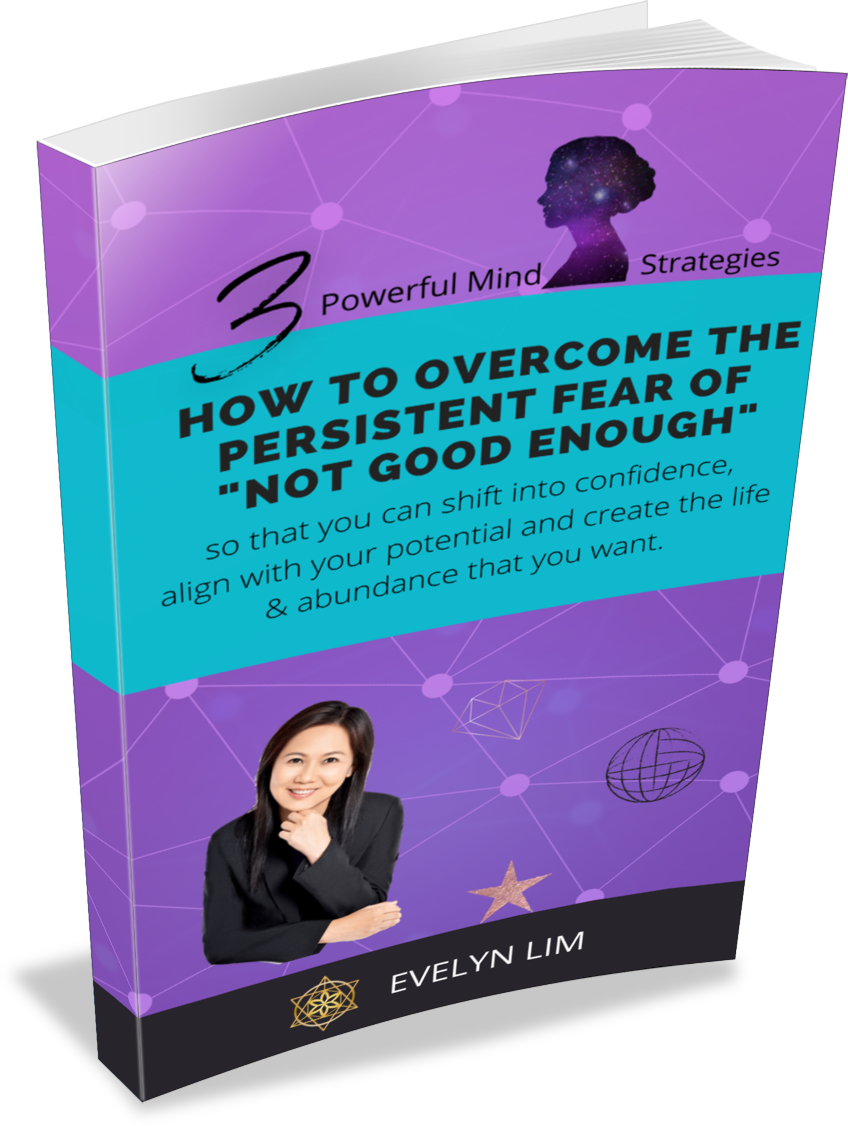What is Emotional Bypassing and Why It Matters

Emotional bypassing happens when we don’t allow ourselves to fully process our negative feelings. Instead, we sweep them under the carpet or we gloss over them by “willing” the mind to think positively. Say, something traumatic happens to us. We don’t face it because we fear feeling worse off. Thus, instead of grieving or upset, we simply put on a brave front and pretend that all is fine.
In another instance, we guilt-trip ourselves for feeling negative when we ought to be grateful. We believe that we have no right to complain about feeling poorly where someone else is at a more disadvantaged situation. And so we stuff our feelings inside.
Emotional bypassing is often referred to as spiritually bypassing. It was the late psychologist John Welwood who coined the term spiritual bypassing to describe what he saw in a Buddhist community. He describes it as the “tendency to use spiritual ideas and practices to sidestep or avoid facing unresolved emotional issues, psychological wounds, and unfinished developmental tasks.” In the practice of non-attachment, many Buddhists deny what they truly feel.
However, those who practice other religions can be spiritually bypassing too. It happens where we are led to believe that a higher power will take care of our troubles and therefore there is no need for us to deal with hard feelings like anger, grief, fear, loneliness, envy, and shame. As a result, we adopt a sense of false positivity.
Whatever the circumstance is, there are negative consequences that arise from emotional bypassing. For a start, we may not be consciously aware that we are doing this. Through the years, we’ve become numb and we don’t realise that we’ve actually closed our hearts. Yet, it’s through the same channel that we experience both the positive and negative feelings. By opening our hearts, we give ourselves the chance to make a shift from sadness to joy, from anger to peace and from fear to love.
Consequences of Emotional Bypassing
Emotional bypassing is a form of coping mechanism. After all, we have been taught to put up a brave front. It’s embarrassing to let others know how vulnerable we feel. Unfortunately, when we don’t allow ourselves to release our negative feelings safely, they build up over time. It is possible that we develop issues like anxiety, depression and mental disorders. According to Traditional Chinese Medicine, excess emotional activity can also create organ impairments and affect physical health.
When there are emotional wounds that are unresolved, our painful memories can come back to haunt us. It’s why we react excessively to small triggers. And we may find ourselves in repeated self-sabotage. Not forgetting, the body still remembers the trauma. Thus, we are in the same habitual patterns even though what we do doesn’t serve us.
Our ability to form healthy and loving relationship gets impacted. When we hold on to anger, we can’t truly forgive. For fear that we don’t get hurt again, we may choose to push away the ones who matter to us most. Because we secretly keep score, we show up with irritation, impatience and frustration. At the same time, we are unwilling to be honest with what we are truly feeling. These are examples of how emotional bypassing can lead to problems in our relationships.
Clearly, if we want things to change, we will need to first recognise if emotional bypassing is something we have been doing.
6 Signs if You Are Emotional Bypassing
Pin the infographic on emotional bypasing below onto your pinterest board 🙂

The Path to Overall Wellness
We’ve been taught to look for the positive side to life, be optimistic, practice grateful for what we have and to find the silver lining behind the clouds. These are all great except that it will also help to process our negative feelings, when we have them. Heart and mind needs to be aligned, so that we can be resilient.
Emotional health needs to happen for overall well-being. We give ourselves the space to work through any burden that we are carrying. It is very healthy to work on letting go of negative emotions. Reach out to me, if you need assistance with emotional healing and/or releasing the past.
Let’s also be aware that while we acknowledge what we feel, we avoid identifying with our emotional life since it is transient. Feelings come and go and we don’t allow our feelings to define us. We allow them to flow through, releasing them and not attaching ourselves to them.
At every level of consciousness, we choose to be in optimal well-being. As spiritual beings, we are more than our emotional and physical life. In this physical experience, we allow our feelings to offer us feedback; with the opportunity to integrate important life lessons that can potentially lead to spiritual transcendence.
Read Related Article: Applying EFT Tapping prevents the problem of emotional bypassing
Love and abundance always,
Evelyn Lim
Transformation Life Coach for Women


